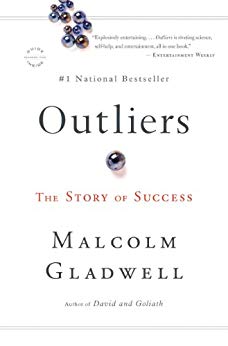

This article is an excerpt from the Shortform summary of "Outliers" by Malcolm Gladwell. Shortform has the world's best summaries of books you should be reading.
Like this article? Sign up for a free trial here .
In the early 20th century, Lewis Terman studied a group of child geniuses (his ‘Termites’) and followed them into adulthood. He expected them to be incredibly high achievers – Nobel laureates, CEOs, and heads of state. But what really happened?
Learn the truth about Lewis Terman’s termites here.
The Limits of Intelligence
In Outliers, Malcolm Gladwell argues that intelligence has limits. In something called the “threshold effect,” once you hit a threshold and you’re “smart enough,” then opportunity plays a larger role in determining your success
The advantage of IQ can be likened to the advantage of height on a basketball court. A 6’3” player has a clear advantage over a player who is 5’6”. But a player who’s 6’3” and a player who’s 6’5” are probably pretty equally matched. When the height difference is so small, other factors, such as speed, agility, and strength, more heavily impact success.
It turns out that their IQ does not make some geniuses outliers, although a high IQ helps. As we’ve seen in previous chapters, what truly turns someone into an outlier are the opportunities he’s offered.
Example of the Limits of Intelligence: Lewis Terman and his Termites
After WWI, Lewis Terman, a psychologist at Stanford, decided to do a long-term study following a group of extraordinarily intelligent children, whose IQs averaged 140. He called them the “Termites.”
Terman believed that no personal attribute was more important than a person’s IQ. He was excited to prove how intelligence in childhood correlated to success in adulthood.
Over the years, Lewis Terman tracked the Termites’ physical, academic, and psychological developments. He was convinced that his Termites would be the great leaders of their generation.
In adulthood, measures of success revealed that, while the Termites had done fairly well for themselves, they hadn’t been the true outliers that LKewis Terman had anticipated. To his disappointment, none had won a Nobel Prize.
Ironically, two individuals who actually did go on to become Nobel Prize winners had been dismissed from Terman’s experiment because of their relatively low IQs.
One sociologist demonstrated that if Terman had randomly selected kids from the same family backgrounds as his Termites, without selecting for IQ, the random group would probably have been just as successful as the high-IQ group.
The Termites’ intelligence allowed them to be moderately successful in life, but their intelligence was no better at predicting outlier status than their family background. Like any personal attribute, intelligence can only take us so far. Luck, timing, and opportunity are more important factors. (In the next chapter, we’ll look at how another factor, a lack of practical intelligence, may have stunted the meteoric rise Terman expected of his Termites.)
———End of Preview———

Like what you just read? Read the rest of the world's best summary of "Outliers" at Shortform . Learn the book's critical concepts in 20 minutes or less .
Here's what you'll find in our full Outliers summary :
- What makes some people outliers, and most others not
- Why some genius outliers end up failing in life
- Why Asians are good at math, and other curiosities of culture






